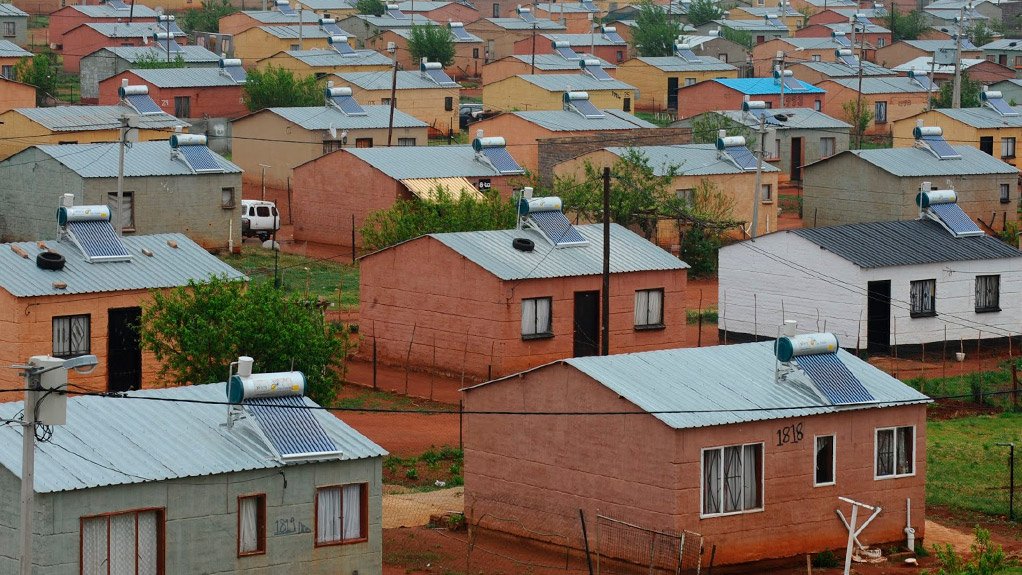/ MEDIA STATEMENT / The content on this page is not written by Polity.org.za, but is supplied by third parties. This content does not constitute news reporting by Polity.org.za.
The Portfolio Committee on Human Settlements is concerned by the lack of synergy between different spheres of government, which impacts negatively on the efficacy of the Emergency Housing Fund. The committee yesterday received a briefing from the Department of Human Settlements on its 4th quarter (January-March 2024) and 1st quarter of 2024/25 financial year.
The committee was informed that for the 2023/24 financial year the department spent only 5% of its R476 million in the Emergency Housing Fund. The department attributed the under-expenditure to various things, from incomplete and delayed beneficiary lists resulting in procurement delays, lack of a standard operating procedure for emergency housing, scattered projects and steep and inaccessible terrain.
“The committee finds it unacceptable that a critical programme such as emergency housing that is tailormade to assist communities when they are most vulnerable and expect urgent assistance can underspend its allocation by 95%,” said Mr Nocks Seabi, the Chairperson of the committee.
While the committee acknowledged that the department is putting measures, together with provinces and municipalities, to remedy the under-expenditure, it emphasised that communities affected by disasters expect an efficient and urgent response from government. “People cannot be left in the mercy of natural disasters while different spheres of government engage in endless bureaucratic mudslinging. Communities affected by these disasters require urgent, targeted and responsive interventions, which is evidently not the case with the current system. Despite this, the committee acknowledged that the resources must be spent responsibly. It remains concerning that the current system seems to be ineffective,” Mr Seabi said.
Similarly, the committee is concerned that the critical target in programme 5: Affordable Housing Programme, related to the First Home Finance (FHF) Programme, could not be met because of the inability to of the FHF champions meeting to quorate. The FHF programme is a critical intervention aimed at supporting the missing middle to access housing opportunities. Underachievement on this critical programme cannot be paralysed by the inability of a forum to meet and implement a critical programme. The committee has requested the department to urgently find mitigating avenues to remedy the situation.
Meanwhile, the committee underscored its concern with continuing under-expenditure in the Informal Settlements Upgrading Partnership Grant (ISUPG) in four provinces, namely Gauteng, Limpopo, North West and Western Cape. The committee’s concerns are in the context of increasing budget cuts, which will make it difficult to motivate for additional funding if allocated funds are not utilised optimally. Also, the squalor and living conditions that communities are subjected to in informal settlements will lead to the erosion of trust if funds allocated for the upgrading of those informal settlements are not utilised adequately.
The committee was informed that as of 31 March 2024, Gauteng had spent 82% of its ISUPG, Limpopo had spent 85%, North West 75% and Western Cape had spent 60%. Furthermore, as of 30 June, only KwaZulu-Natal, Limpopo, Mpumalanga and North West are spending around 25% median in a quarter.
The committee remains concerned by the continued underspending of the Urban Settlements Development Grant by metropolitan municipalities. The grant was developed for the creation of sustainable and integrated human settlements that enable improved quality of life. This funding is used to, among other things, increase the number of basic interim services, improve access to public and social-economic activities, increase the number of serviced sites, provide individual connections and increase the land provision for informal settlement upgrading, subsidised housing or mixed-use developments. “The under expenditure on this critical programme should be arrested before the funds are reverted to the revenue fund, robbing residents of projects that will improve their lives. It is unacceptable that an amount of R17.9 million (Buffalo City Municipality R1.3 million and Nelson Mandela Bay R16.6 million) will revert to National Revenue Fund for the 2023/24 financial year,” said Mr Seabi.
Despite these concerns, the committee acknowledged the plans presented to the committee in its meeting last week to ensure collaboration with provinces and municipalities to improve project planning and implementation and ensure spending of allocated funds. The committee has committed to enhance its oversight to ensure that those plans are implemented.
The committee has also urged the department to, upon the conclusion of the organisation review process, present the structure to the committee. The committee is of the view that an efficient structure is necessary to ensure that the department delivers on its mandate.
Issued by the Parliamentary Communication Services on behalf of the Chairperson of the Portfolio Committee on Human Settlements, Nocks Seabi
EMAIL THIS ARTICLE SAVE THIS ARTICLE ARTICLE ENQUIRY
To subscribe email subscriptions@creamermedia.co.za or click here
To advertise email advertising@creamermedia.co.za or click here











